Mike Doughty - Interview
by John Clarkson
published: 16 / 2 / 2012
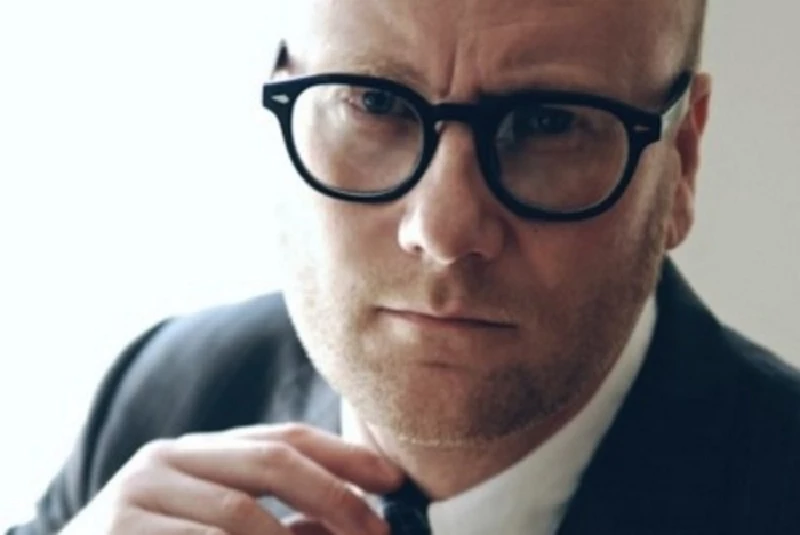
intro
John Clarkson speaks to ex-Soul Coughing front man Mike Doughty about his new album, ‘Yes and Also Yes’, and recent autobiography, ‘The Book of Drugs’, which reflects with self-lacerating humour on his former group's acrimonious disintegration and addiction to both drugs and alcohol
It has often been said that the best comedy is born out of pain. Mike Doughty, who is on the phone to Pennyblackmusic from his native New York, is side-achingly hilarious, and deadpan and occasionally acidic as he talks to us about both his just released fifth solo album, ‘Yes and Also Yes’, and recent memoirs, ‘The Book of Drugs’. His is, however, a humour that comes out of suffering. On surface appearances and certainly in its title, ‘Yes and Also Yes’, is up-tempo in tone, the fourteen largely short songs its packs into its brief running time of thirty five minutes featuring quirky lyrics and several super melodic pop songs. Doughty then builds on this offbeatness by using unusual instrumentation, and throwing into most of the tracks sudden curveballs of wigged-out experimentalism. Its undercurrent is, however, much darker. Study of the track listing reveals that several of tracks were recorded using as a shaker capsules of Duloxetine, an anti-depressant that Doughty takes. ‘Into the Un’, written and rejected for the ‘Twilight’ soundtrack, is about a group of teenage Goths on LSD in a train station, who “swim in the centre of a dark, dark sea”, while ‘The Huffer and the Cutter’ tells of the delicate romance between a glue sniffer and someone who self-harms. ‘Telegenic Exes’, which comes in two versions, each with different lyrics, the first played on a Chinese lute, a Zhong Ruan, and the other on guitar, chronicles the alienation and ultimate emptiness of hedonistic big city living. Even ‘Holiday’, a Christmas record, sung as a duet between Roseanne Cash and Doughty, has, for all its upbeat, chiming sound, and its depiction of a magical snowy landscape, a shadow of melancholy to it as its two lovers find themselves out of alignment with each other (“What do you want/What do you want/What do you want me to give you?”). ‘The Book of Drugs’ is even bleaker still, a self-lacerating and surreally comic account of Doughty’s life, that begins with his upbringing at the West Point Miltary Academy with his silently angry Vietnam vet father; hysterical mother and delusional , eventually institutionalized younger brother. It chronicles Doughty’s disintegration into drug abuse, and addiction to both snorting cocaine and heroin, which he only eventually managed to come off by binge drinking and becoming addicted to alcohol instead. The book is also about Doughty’s rise as a musician. It tells of his beginnings in New York underground scene, and his formation of the cult act Soul Coughing, whose music combined an alternative rock sound with jazz and hip-hop influences. It was a group that quickly became acrimonious when Doughty’s band mates, who he calls in ‘The Book of Drugs’ simply the sampler player, the bass player and the drummer, ripped him for large shares of the song writing royalties even though Doughty was the only songwriter. Soul Coughing, however, chaotically survived for eight years together and across three albums, ‘Ruby Vroom’ (1994), ‘Irresistible Bliss’ (1996) and ‘El Oso’ (1998), despite Doughty’s claims that the other three band members also continually belittled his musical ability, fought against most of his creative decisions, and stole and broke his possessions. ‘The Book of Drugs’ describes as well, after Soul Coughing’s break up, Doughty’s emergence as a solo artist, which found him selling his first solo album, ‘Skittish’ (2000) from the stage of his solo concerts, before signing to bestselling singer-songwriter Dave Matthews’ ATO Records for his second record, ‘Haughty Melodic’. Doughty’s third and fourth albums, ‘Golden Delicious’ (2008) and ‘Sad Man Happy Man’, were also released on ATO. ‘Yes and Also Yes’ has, however, come on Snack Bar Records, which is his own label. Mike Doughty has been clean from drugs and alcohol for five years, but one is left with the impression, after conversation with him and reading ‘The Book of Drugs’, that any sense of peace or self-worth that he has now has been hard-earned. PB: ‘Yes and Also Yes’ is an overwhelmingly positive title, isn’t it? MD: Yes. There are actually two sources for it. The first is that I had been doing a lot of comedy shows, not doing comedy myself, but the musical gaps in between which was amazing. These people are fucking smart, man. One of the main types of comedy is improv comedy where they improvise sketches, and Del Close who was the guru of that stuff in the seventies came up this rule for it which was ‘Yes and...’ So you have might have two guys up on stage and one might say, I am a sea monster, “ and the other might say, “Yes and I am a man and a boat” as supposed to “I am a sea monster,” “No, you’re not, you’re a doctor.” If they just keep saying “Yes and...” to each other, the scene sort of builds itself. That was part of it. The other thing is that I did online dating which I was woefully unsuccessful at, but I had to fill in an online profile and it required a headline, so I came up with ‘Yes and Also Yes’ for that. I then used that later again for the album. PB: It was written at Yaddo, which is a writers’ retreat in upstate New York and where various writers such as Carson McCullers and Sylvia Plath hung out. What kind of place is that? MD: It is a mansion that is owned by a rubber baron of the early twentieth century. It is super ornate and they have got thrones in it. It is really bizarre and awesome, and it is just hilarious that I ended up in Leonard Bernstein and Aaron Copland’s cabin writing these songs. They were taking applications though, and I just thought, “What the hell else can I do?”, so I went out of town and they let me in. PB: At one level ‘Yes and Also Yes’ has a really strong pop sensibility, but at another level with each song you seem to throw in a curveball and put in something off-kilter into it, so it is a combination of hooks and leftfield experimentalism. Was that what you were aiming for with this record? MD: Yeah, it was. I came to New York when I was a kid in the late 1980s and I was working in this avant garde music club, the Knitting Factory, just absorbing all this super dissonant music. On the other side though I stumbled upon this amazing explosion of hip hop and house music and, because it was sample based, it had all these really weird parts in it. It was like being schooled in dissonance and strangeness and off-kilterness, and that has been a part of my thing really ever since. PB: You signed to ATO at the time of ‘Haughty Delicious’, having sold your first two albums independently from the stage. You have now gone completely independent again, putting this album out through your own Snack Bar Records. Why have you decided to go back to that rather than involve another label? MD: Basically, not to put too fine a point on it, because there is more money in it. It is upper expensive now to have to pay for everything, but theoretically down the line I will make more money. As time goes by there are fewer and fewer people working at labels as well. When you are on a label, the usual method of working for groups or musicians is to try and goad or guilt trip them into doing what you need them to. It was one thing doing that when there were maybe ten people working at the label and eight bands, but nowadays it much more difficult as there is maybe eight people there and twenty bands. It just became easier for me to work at it vocationally and do my own thing. ATO is owned by artists, and I do have to say that they never got heavy with me. They were always super-chilled about things. PB: The album features, ‘Holiday’, upon which you share vocals with Roseanne Cash. How did you first become involved with her? MD: I did a Christmas show with her for a radio station, and we were both on the bill and there were four acts. I was second on the bill and she was obviously headlining, and she said from the stage, “I feel nervous playing my new songs tonight, because Mike Doughty is here and he is such a great songwriter,” and my jaw hit the floor. I was surprised that she had even heard of me. I talked to her after the show, got her email, and then a month later I had written that song. The truth was that there was note that I couldn’t hit, so I decided, just for the hell of it, to write to Roseanne and see if she wants to do it as a full-on duet. Then again my jaw hit the floor when she agreed. PB: Have you had much contact with her since? MD: Oh yes, I talk to her all the time. I wrote a song with her. I don’t know if she is going to record it, but we got together and wrote this song. PB: ‘The Huffer and the Cutter’ is a song about the love affair between someone who sniffs glue and someone who self-harms. Was that based on real people or did it just come from the imagination? MD: I knew the people in the song, but it wasn’t built on an actual relationship. It seemed like all the girls that I hung out with with when I was a teenager were all into cutting. Cutting was the shit. It was like an epidemic in the weird army circles that I travelled in as a teenager. I knew a lot of glue sniffers as well. The characters were derived from my teenage years. PB: Is it true that ‘Into the Un’ was written for and rejected for the ‘Twilight’ soundtrack. Were you commissioned to write it or did you just submit it in the hope of getting used? MD: A lot of times you will get an email if you are a songwriter, and they are looking for songs for whatever the movie is, and you know have asked five hundred other people as well, but for ‘Twilight’ they called me in for a meeting, and sat me down and said, “Are you interested in this?” as supposed to the usual thing. It was kind of shocking, but of course I didn’t get it. I kind of knew of the moment they asked me that I wasn’t exactly cut out for the ‘Twilight’ soundtrack. It is a good song though. I like the song. PB: You have used the anti-depressive drug, Dulaxitino, on several tracks as a shaker. How did you discover that it makes a great percussion instrument? MD: I take Duloxetine every day. I just picked it up. It is one of those capsules with little tight balls inside it. I am always looking for a good shaker sound, and this one was perfect. There is a video of me recording with it. If you google Mike Doughty and Duloxetine and shaker, you will find it on YouTube. PB: You played the Chinese lute, the Zhong Ruan, on ‘Telegenic Exes’. How did you first discover that instrument? MD: I went to Shanghai a bunch of years ago, and I found this instrument shop and walked in, and there were all these dudes playing them, and I thought, “It looks sort of like how one would play banjos or guitars,” and so I bought one and took it back to New York with me. It sounded cool and worked well. It is a super, awesome thing to have on a record. PB: You have got two versions of that song. Why did you decide to do it twice? MD: They started out as two different songs that I wrote, but melodically and thematically they are similar, so rather than pretend that they didn’t sound like each other I made them two units of the same quantity. PB: You are very open in ‘The Book of Drugs’ about not just your own addiction problems, but your family’s mental problems. Addiction is obviously a predominant part of the music industry. Do you think that your addiction was precipitated by you becoming a musician, or do you it was something that would have happened to anyway? MD: It would have happened to me anyway. I think that if you have whatever that predisposition is - People say a disease, but I find that word problematic- and it is triggered by whatever trauma happens to you when you are a kid then it will inevitably turn you into an addict. If I had been a mail man, I would have still been an addict. PB: Despite being addicted to drugs, you seemed to show a certain degree of restraint and control because you never used a needle. You always had an apartment and you never ended up on the streets, and when you came off drugs you managed to cut it out abruptly, although admittingly your alcohol treatment went up hugely. Do you think that there was a level of control at the same time? MD: I think that it is like that for a lot of drug addicts. Your average drug addict has a job and is eking out a living, One of the goals of the book was not to sound like a bad ass. Most books about drug addiction are about prisons and broken noses and guns, and that is not my story. I wanted something that was funny, that had this kind of haunted quality to it, but at the same time wasn’t like this whizz bang tale of first flying. PB: You are also very funny about your drug taking. Did any it seem to you funny or surreal at the time? MD: No. It wasn’t funny. It was definitely way after the fact that realised how funny this stuff was. I was like a rat in a maze. I was trying to get to the cheese. I didn’t give a fuck about what the nature of reality was around me. PB: Your have described Soul Coughing as being like “the devil’s asshole.” From the outset it seems to have been an unbelievably unpleasant and vile experience. Why did you stick it out for so long and across three albums and eight years? MD: Well, because I am a crazy person. If you come from a fucked family, you will seek another fucked up family. It was like one of those marriages that you see people get into, and you are like, “Why the hell are you with that person?” If you are a mess, you can’t think of a way out of a situation like that. I didn’t think that it was possible. PB: You imply on the sleeve notes to Soul Coughing’s compilation album ‘Lust in Phaze’, which was released in 2002, that as a musical act you worked quite well and sounded good on stage together. Was that part of the reason that you stayed together for as long as you did as well? MD: I felt that with our songs and the muscles that we had instrumentally we could have given the Beastie Boys a run for their money. The thing is though that I didn’t really like our music. A lot of people are Soul Coughing fans and I am not. The tunes were great. Let me pat myself on the back. Jesus Christ! The tunes were great, but I think that that the band undermined them and what became more important to them was putting me down. I think that number one on their agenda was making me feel bad. I look back it on now and I am like, “Those guys were idiots.” They fucked up a clear path to a decent career, and they fucked it up out of what I think is just spite. PB: You never actually mention your band mates by name. Why did you do that? There was also a famous rock star who helped you as you were going through recovery and again you just call him the rock legend rather by a name. MD: I felt that I didn’t want to violate the rock legend’s privacy. He is a famous guy and if you put him in your book it is like you are shanghaiing him into being a character. In terms of my band mates I just didn’t want to throw mud on their names. Most people will not know who they are, but the number one fact of any kind of memory-based thing is that people see things wildly differently. PB: Are you worried that you might alienate those fans who do like Soul Coughing by saying that you don’t actually like Soul Coughing’s music or does it not worry you? MD: If they have been reading my blog and following Twitter, they will know that very well by now. I haven’t played any Soul Coughing since I went solo. For the first couple of years of my solo career, people showed up wanting to hear Soul Coughing songs, and eventually they figured out that I wasn’t going to play them. There is still a guy who shouts out ‘Circles’ or ‘Super Bon Bon’ at every show, but the bulk of the audience by far is hip to the fact that I will only spend stuff from the solo records. I think most of my fans have come to terms with the fact. PB: Final few questions . You are about to play a solo tour of the United States in which you are going to take questions and answers as part of it from the audience? Have you done anything like that before? MD: Yeah, I actually put an album out in the States recently of a show that I did a few years ago called ‘The Question Jar Show’ in which we put a jar on the front of the stage, the audience put questions in and I answered them between songs. They were weird questions. I would imagine that I will get some more straightforward questions for this one about the book. PB: Are you planning to tour Europe with ‘Yes and Also Yes’? MD: I want to. I love Britain. I love Berlin and Paris, but the deal is that it costs money. I have to scrounge up the cash to get over there. If I could do it, I would be over there in a heartbeat. PB: What other plans have you got for the future? What will you do once you have done the American tour? MD: It sounds goofy to say it, but I am just trying to listen for whatever the songs are and what they want to be for the next album. I find that things are better if you don’t try and force them to be something. The music exists of outside me and it decides what it wants to be, and I am kind of there working for it. I know that sound as new age as fuck, but it works. I don’t know how it works, but it works. PB: Thank you.
Band Links:-
https://www.facebook.com/mikedoughtyhttps://twitter.com/Mike_Doughty_
http://www.songkick.com/artists/367320-mike-doughty
https://www.youtube.com/user/MikeDoughtyVEVO
http://www.mikedoughty.com/
Picture Gallery:-
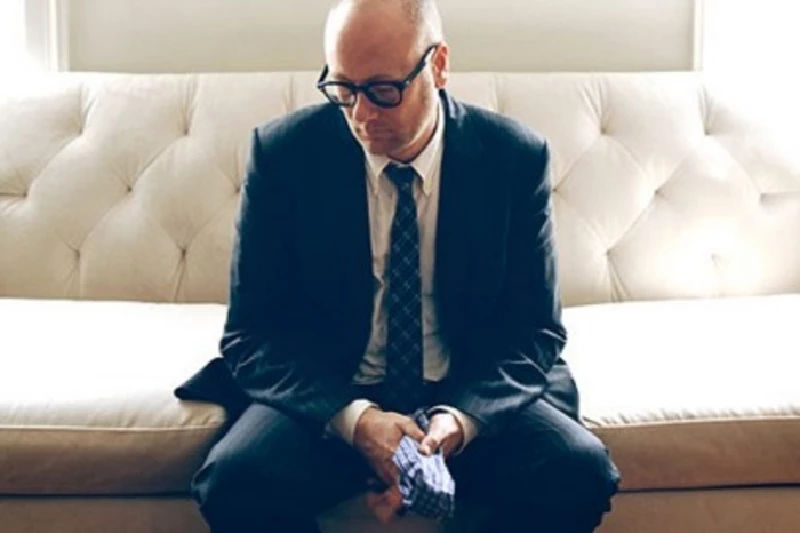
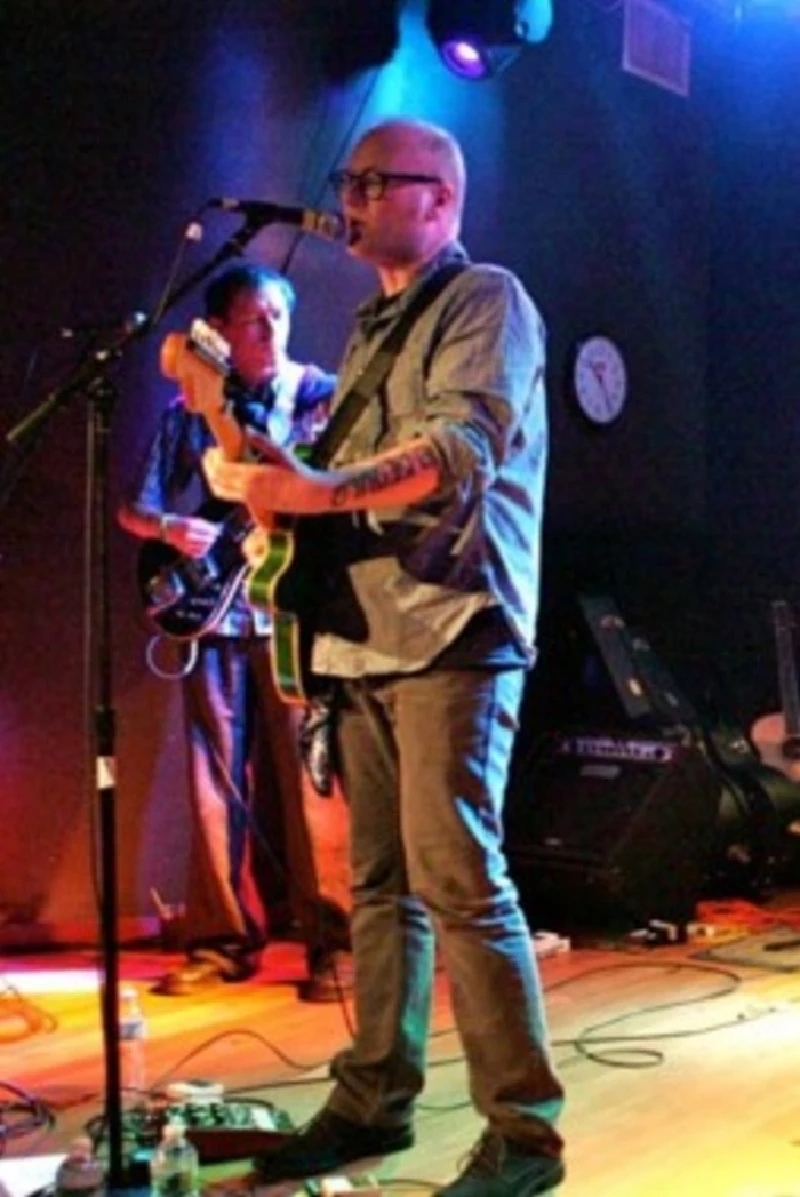
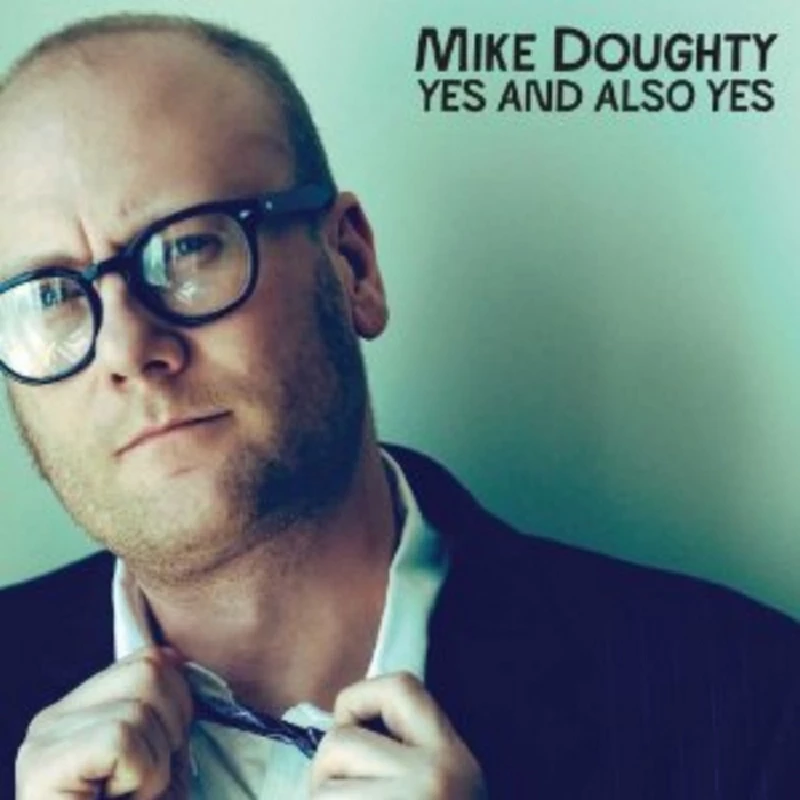
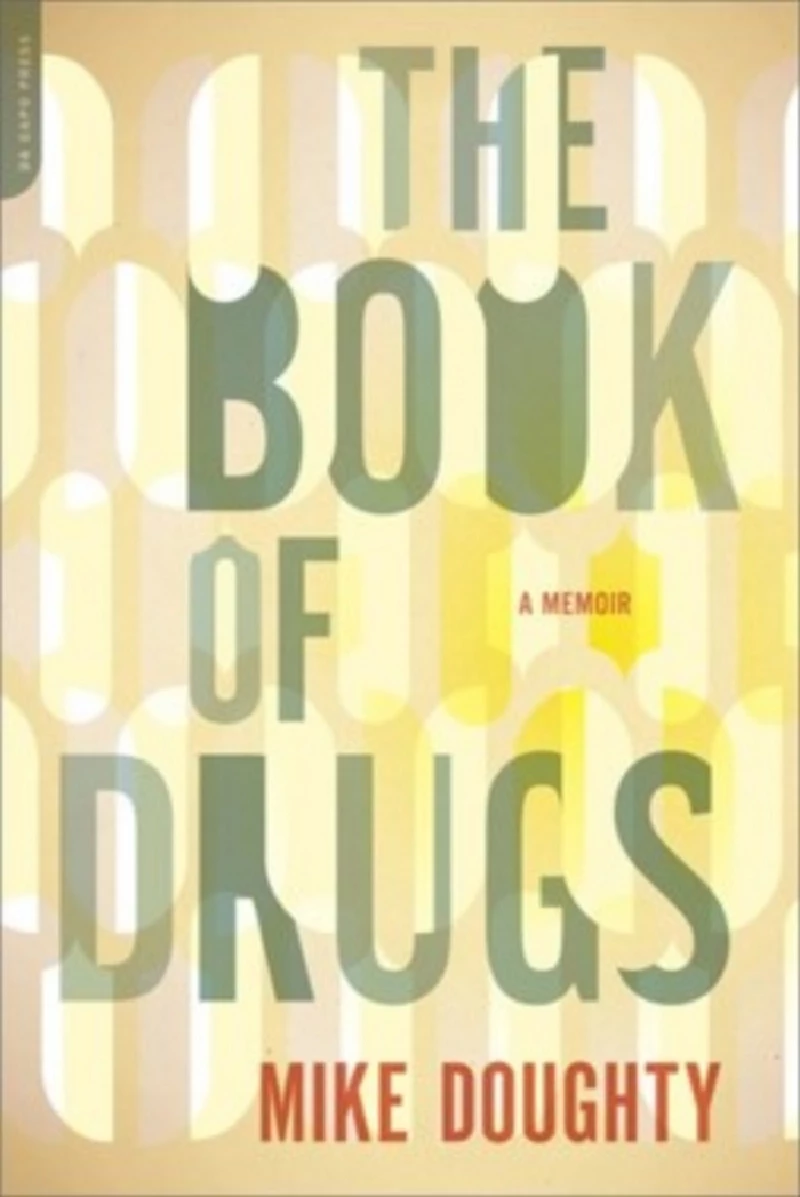
soundcloud
reviews |
|
The Flip is Another Honey (2013) |
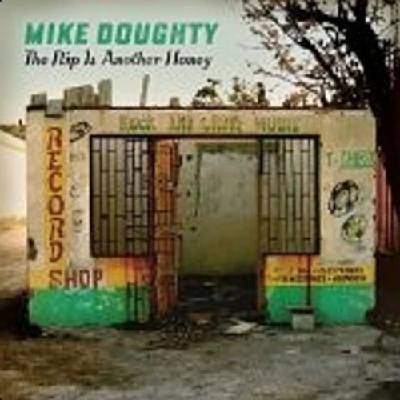
|
| Unorthodox covers album from ex-Soul Coughing front man Mike Doughty, which finds him reintepreting songs by artists including John Denver, Cheap Trick, Stephen Sondheim, Thin Lizzy, the Stone Roses and French chanteuse Camille. |
| The Question Jar Show (2012) |
most viewed articles
current edition
Carl Ewens - David Bowie 1964 to 1982 On Track: Every Album, Every SongArmory Show - Interview with Richard Jobson
Colin Blunstone - Thalia Hall, Chicago, 16/7/2025
Bathers - Photoscapes 1
Visor Fest - Valencia, Spain, 26/9/2025...27/9/2025
John McKay - Interview
Billie Eilish - O2 Arena, London, 10/7/2025
Robert Forster - Interview
Sir Tim Rice - Interview
Loft - Interview
previous editions
Heavenly - P.U.N.K. Girl EPManic Street Preachers - (Gig of a Lifetime) Millennium Stadium, Cardiff, December 1999
Beautiful South - Ten Songs That Made Me Love...
Oasis - Oasis, Earl's Court, London, 1995
Pixies - Ten Songs That Made Me Love...
Trudie Myerscough-Harris - Interview
Doris Brendel - Interview
Prolapse - Interview
Simon Heavisides - Destiny Stopped Screaming: The Life and Times of Adrian Borland
Paul Clerehugh - Interview
most viewed reviews
current edition
Sick Man of Europe - The Sick Man of EuropeLucy Spraggan - Other Sides of the Moon
Amy Macdonald - Is This What You've Been Waiting For?
Phew, Erika Kobayashi,, Dieter Moebius - Radium Girls
Davey Woodward - Mumbo in the Jumbo
Bush - I Beat Loneliness
Blueboy - 2
Alice Cooper - The Revenge of Alice Cooper
Cynthia Erivo - I Forgive You
Suzanne Vega - Flying With Angels
Pennyblackmusic Regular Contributors
Adrian Janes
Amanda J. Window
Andrew Twambley
Anthony Dhanendran
Benjamin Howarth
Cila Warncke
Daniel Cressey
Darren Aston
Dastardly
Dave Goodwin
Denzil Watson
Dominic B. Simpson
Eoghan Lyng
Fiona Hutchings
Harry Sherriff
Helen Tipping
Jamie Rowland
John Clarkson
Julie Cruickshank
Kimberly Bright
Lisa Torem
Maarten Schiethart